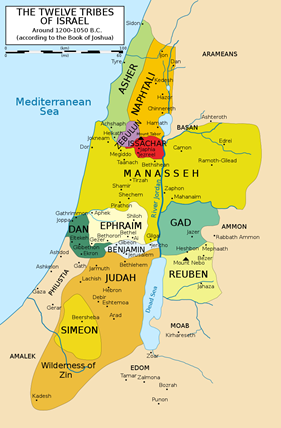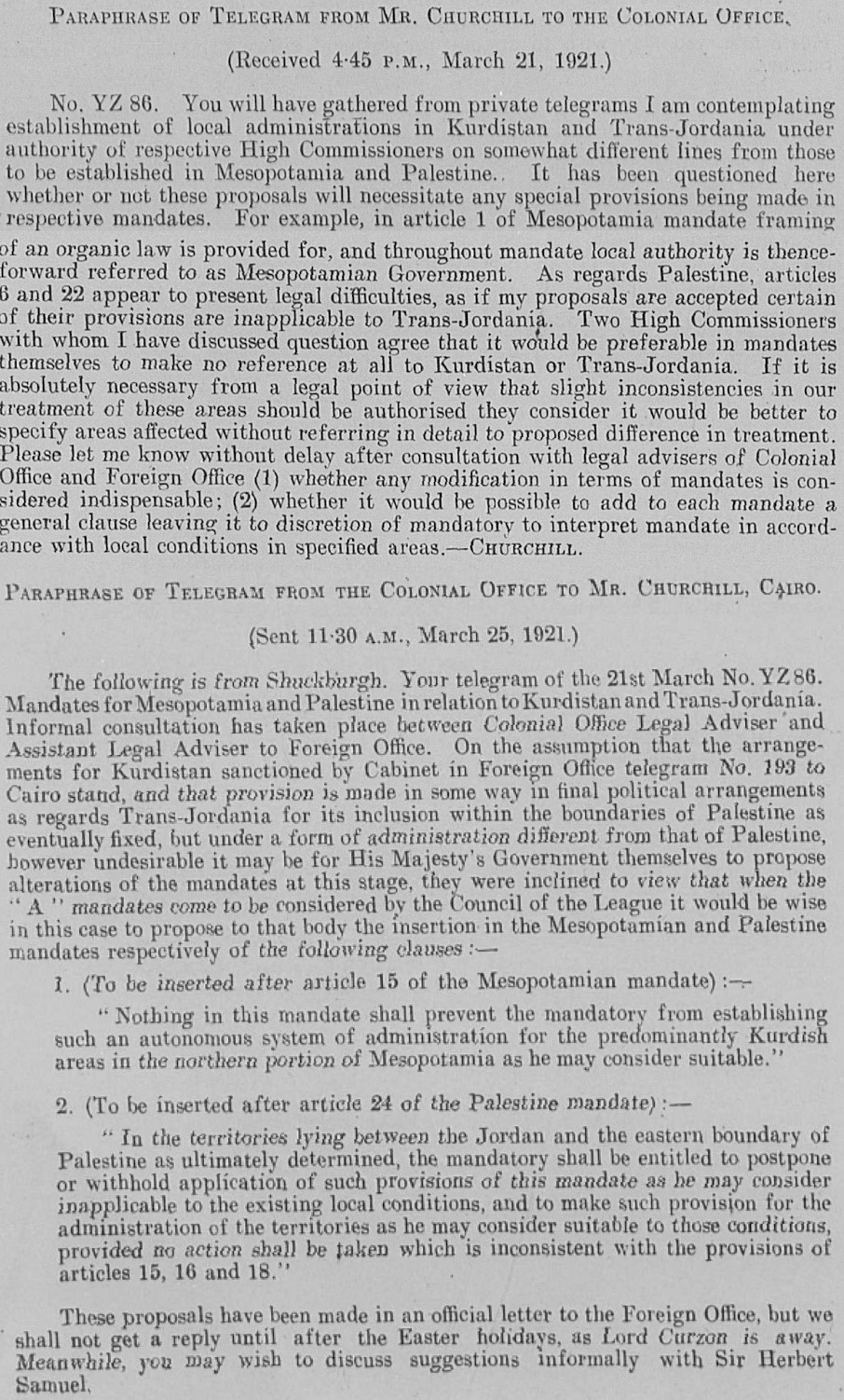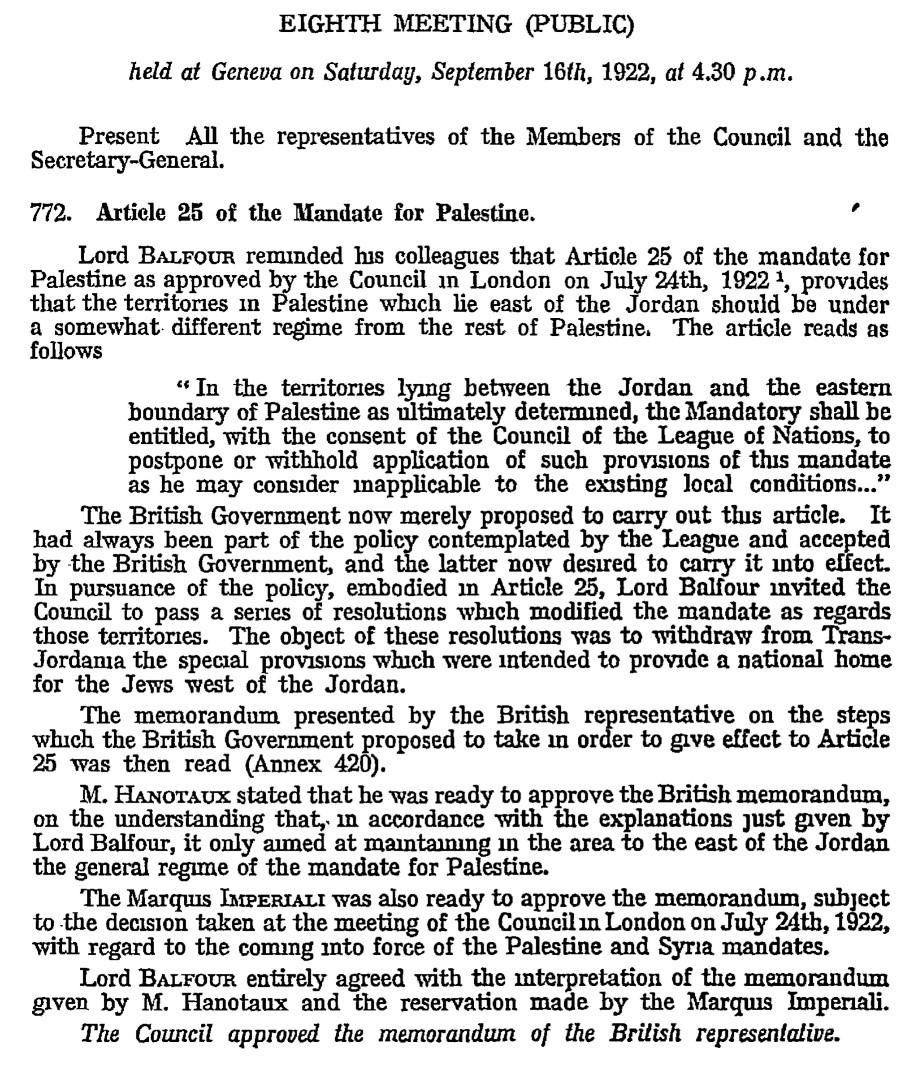Jordan continues to be the stumbling block to ending the 100 years old conflict between Jews and Arabs as it celebrates its founding 100 years ago on 11 April 1921 - whilst simultaneously 100 years of unbroken rule by the Hashemite dynasty has been publicly imploding.
Initially called the Emirate of Transjordan - the Hashemites - hailing from the Hejaz - now called Saudi Arabia – were anointed as Transjordan's future rulers by Britain at the 1921 Cairo Conference as part of the machinations between Britain and France in the carve up of the territory of the defeated Ottoman Empire in World War 1.
99.99% of Ottoman-liberated territory was designated for Arab self-determination under the French Mandate for Syria and Lebanon and the British Mandate for Mesopotamia - whilst the remaining 0.01% was to be set aside for the reconstitution of the Jewish National Home in the area today called Israel, Jordan, Gaza and Judea and Samaria (West Bank) pursuant to the British Mandate for Palestine.
Advertisement
Two and a half of the twelve tribes of Israel had settled in Transjordan: Gad, Reuben and half the tribe of Manasseh:

Transjordan - 78% of the territory comprised in the Mandate - was however completely excluded as the site for any part of the future Jewish National Home - when Article 25 was inserted in the Mandate document unanimously endorsed by the League of Nations on 24 July 1922.
Transjordan's exclusion from future Jewish settlement came after the exchange of the following telegrams between Britain's State Secretary for the Colonies Winston Churchill and British Colonial Administrator John Schuckburgh in March 1921:

Advertisement
The coup de grâce was duly delivered by the Council of the League of Nations on 16 September 1922:

With impeccable Anglo-French doublespeak – the Jews were thus denied any right to reconstitute their National Home in any part of the Mandate territory east of the Jordan River. However – Jewish settlement anywhere west of the Jordan River – including Gaza and Judea and Samaria (West Bank) – has been preserved until today under Article 6 of the Mandate for Palestine and Article 80 of the United Nations Charter.
Former American President Jimmy Carter summed up Jordan's founding in Time Magazine on 11 October 1982:
[Jordan's King] Hussein is personally courageous but an extremely timid man in political matters. That timidity derives almost inevitably from the inherent weakness of Jordan. As a nation it is a contrivance, arbitrarily devised by a few strokes of the pen.
Transjordan remained part of the Mandate for Palestine until Britain granted it independence on 25 May 1946 when it was renamed "The Hashemite Kingdom of Transjordan".A further name change to Jordan only came in 1950 after Transjordan had conquered Judea and Samaria and East Jerusalem in 1948 – expelling all the Jews living there and uniting those areas with Transjordan to form a single territorial unit until their loss to Israel in the 1967 Six Day War.
Israel and Jordan signed a peace treaty in 1994 which remains in force today despite many events that could have derailed it.
The two-state solution first contemplated in 1922 for Palestine:
- one for the Jews within 22% of the Mandate territory
- one for the Arabs exclusively in the remaining 78%
still remains the only realistic and politically-achievable basis for any two-state solution in 2021.
Subdividing Judea and Samaria (West Bank) and Gaza– 5% of the Mandate territory where sovereignty still remains unallocated – between Israel and Jordan – the two successor States to the Mandate for Palestine exercising sovereignty in the other 95% – remains the key to ending the Arab-Jewish conflict.
After 100 years - Jordan's ruling Hashemite dynasty finally needs to end its timidity.
Discuss in our Forums
See what other readers are saying about this article!
Click here to read & post comments.